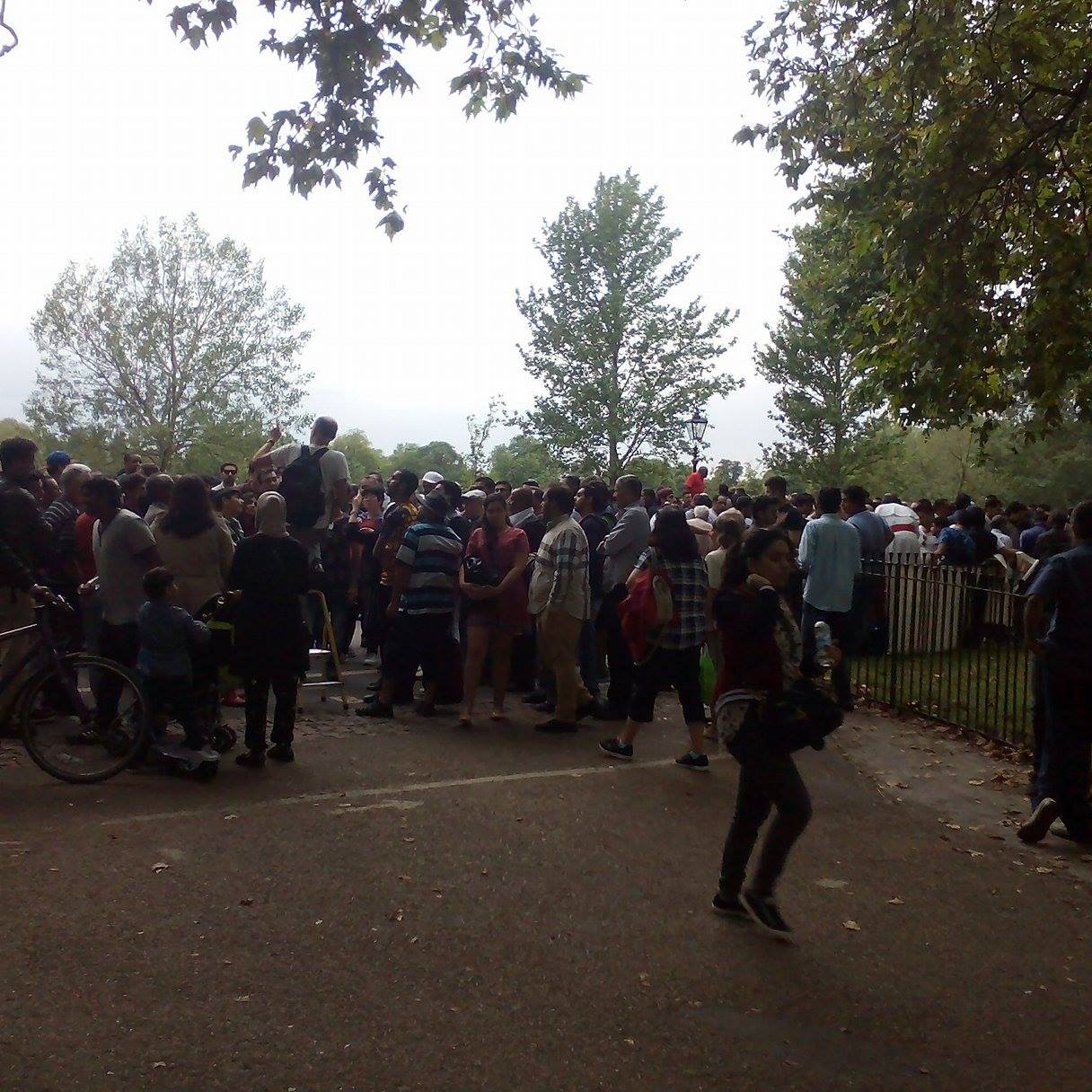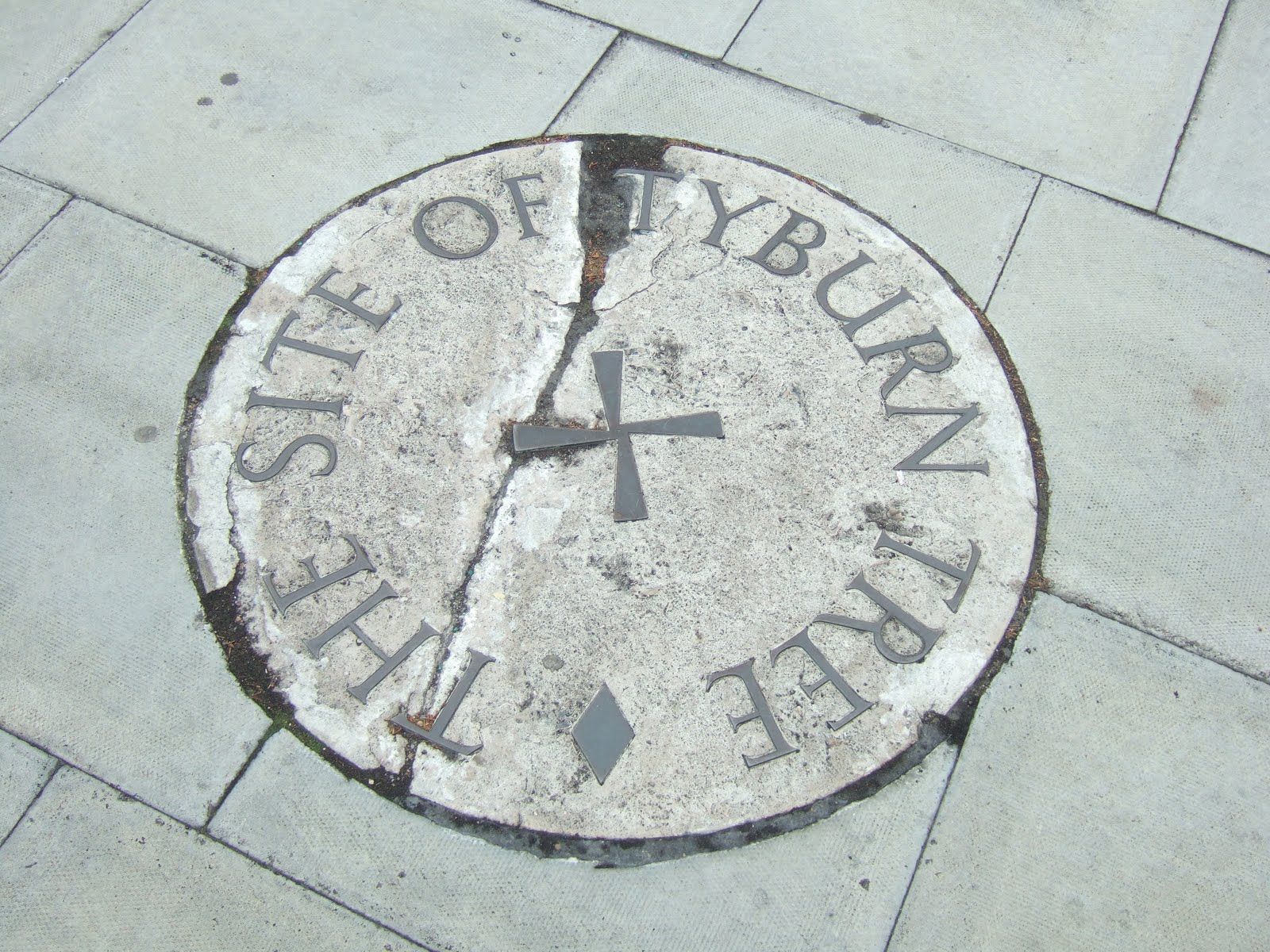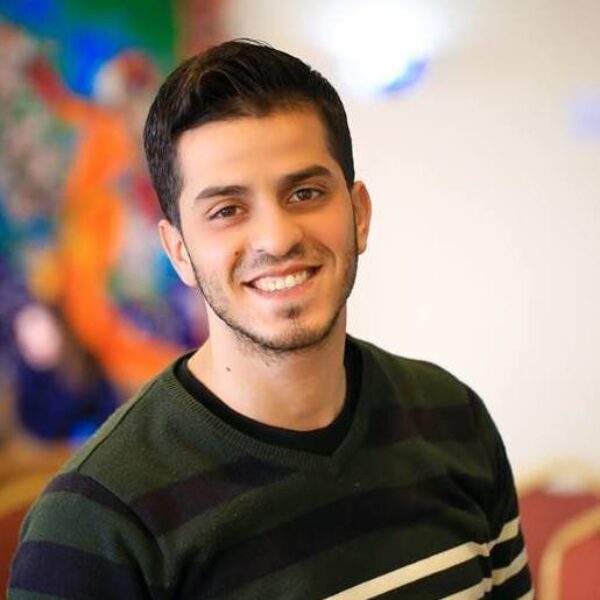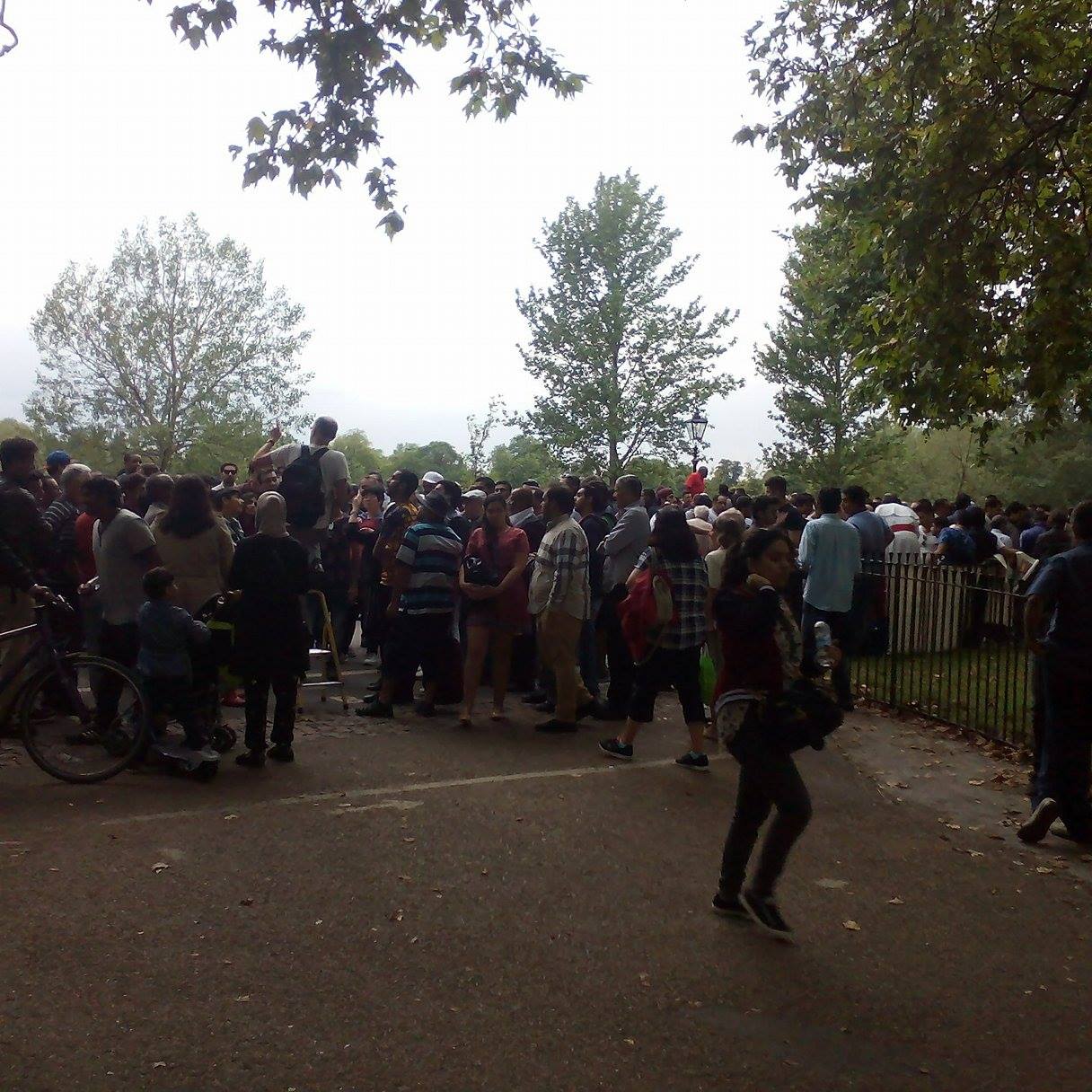When I was in Oxford this summer for a medical training, I spent each week impatiently waiting for Saturday mornings so I could take a backpack and wander around London. I spent hours just walking the streets, parks and bridges, staring at everything so I didn’t miss even one small corner. I examined every building, statue, park and other landmark of historical events that happened centuries before.
Most of the time, when I came to London, I would get off the bus at the stop closest to the 19th-century landmark known as the Marble Arch. On the last weekend before I returned to Gaza, I was about return to Oxford so I could get my bags ready for travelling I stood at the stop for a while waiting for the bus. Then I heard a loud voice coming from behind, in the direction of Hyde Park, one of the largest parks in London. I turned my head, searching for the source of the voice. Just as the bus to Oxford arrived, I saw a huge gathering at one of the park’s corners. Although I was exhausted after a long and tiring day, my curiosity pushed me toward the gathering. I missed the bus, thinking, "Oxford will stay where it is; I'll go back later today."

As I drew closer to the crowd, I saw four men standing on small chairs in four spots. Around each one there was a small group of people listening to what the man was saying. I took a step forward to listen. One of them was wearing a white robe and a red belt around his waist, holding a a Bible and preaching. The other one, whom I listened to with interest, was a gray-haired man in his 60s, wearing jeans and a T-shirt with a photo of Jerusalem. In the picture, two flags flew from the dome of the holy mosque: one Israeli and one Palestinian.
I moved closer to listen to the conversation between the man and some of the spectators. He was talking rapidly, but soon I understood his main aim was to prove that the primary problem with the Arabic world is the people’s embrace of Islam instead of “modernity.” To prove his point, he pointed to countries like Iraq, Yemen, Syria, Libya, Lebanon and Palestine. However, I do not think he had ever visited any of them.
He blamed Islamic extremist organizations for the slow development and mayhem in the Arab world. A young woman in her 20s and wearing a hijab asked rhetorically, “Don't you ever ask yourself why disputes and devastation are mainly happening in the Arab world? Don't you think the possibility of a united Arab world seems scary to the West? We are talking about 22 countries sharing the same language, religion and history. Don't you think those afraid of this idea, of united Arabs, would do their best to mess up our world and keep this state of underdevelopment, conflicts and war going on forever? Both you and I know exactly who I'm talking about, and we know how they're obsessively concerned about keeping the Arab world divided.” The speaker never replied.
Other young people also expressed objections to his generalizations. Some of them became annoyed, saying he was loud and arrogant and interrupted their own statements. Others decided to leave. I also considered leaving but couldn't. I kept listening to his monologue, until he cited Israel as an example of “civilization” in the middle of darkness. He said the Arab world must learn from its neighbor how to evolve past the dark ages. I couldn't take it anymore. I interrupted his speech and told him, “that's enough. Israel is not and never will be such a ‘neighbor.’” Created on the land of Palestine, Israel is a colonial entity whose government has relied on walls, checkpoints, prisons and a seemingly endless series of assaults and massacres to disenfranchise and subjugate the native people—my people.
Before 1948, there was no Israel. Israel was built on the rubble of my grandparents’ house. Israelis came to the land by ships and planes and ethnically cleansed my people from their villages and cities so they could build a state they called Israel. “How can you say we have to take lessons from a country like this?” I demanded. He replied, “Israel doesn’t kill innocent people. Israel kills terrorists.”
I believe there are people in this world who know little and are not familiar with the facts, and there are others who know the facts yet manipulate and lie about them. There also are those who we wont’ forget and can't forgive. I raised my voice so everybody could hear me. “I'm from Palestine and my cousin was killed in the last war on Gaza. Samar was 29 years old and was murdered with her two sons and 8-month-old, unborn child. They were killed in their home by an air strike, while they were preparing food to break their fast. You consider them terrorists? I volunteered at the hospital during the 51-day onslaught last year and I didn’t see one single resistance fighter injured or dead. All I saw were civilians, mainly women and children. I saw my cousin with her children in one big black bag on the ground among other burned or mangled bodies.
Again, not a single word was heard from the speaker until one of the spectators interrupted me.
"Why do you keep talking about this very small corner of the world, while plenty of others are suffering even more than you do? You act like only Palestinians are suffering, like there is nobody else in this world but you," he said.
"We don’t say we are the only ones suffering,” I replied. “But we are the only nation occupied for more than 60 years by a country that built itself at our expense, with the rest of the world acting like we never existed. In Gaza, we are the only people living in a huge prison controlled by our occupiers, not allowed to sail a boat out of our harbor, fly a plane through our airspace or even walk out through the main exit without their permission."
He replied, "I don't care." Then I left.

Later on, I learned this spot in London is called the "Speakers Corner." More precisely, it is located on the northeast edge of Hyde Park, close to the Marble Arch and Oxford Street. It has been a traditional site for public speeches and debates since the mid-1800s. It is often seen as a shining symbol of Britain's entry into liberal democracy, but its history is infamous. Speakers Corner began its life as a place for public executions, beginning with the notorious Tyburn hanging trees. Located in the county of Middlesex, now part of greater London, Tyburn village was named after the Tyburn Brook, which was flanked by a neat row of elms used for hangings. Around the year 1571, a triangular-shaped gallows was erected. Each beam could accommodate eight people at once, so 24 could swing together at one time. The gallows stood at Tyburn until 1783, when the official place of execution was moved to Newgate Prison. By that time, more than 50, 000 people had been executed there. Everyone condemned to die at Tyburn could make a final speech to the spectators. In the 1872 Parks Regulation Act, the right to meet and speak freely in Hyde Park was established through a series of regulations. Since then, Speakers Corner became the "Home of Free Speech."
Although the conversation with the gray-haired man was annoying and his comments inaccurate and inflammatory, I saw our encounter as one of the features that distinguishes Great Britain and its history. We had a free conversation in front of the public, and each one of us said what he believed in, standing in the same place where people used to be executed for their opinions hundreds of years ago.
I dream that someday, the site of the massacres committed in Gaza will become speakers' corners. One can only hope and dream and work for peace.
Mentor: Mazin Qumsiyeh
Posted October 21, 2015










